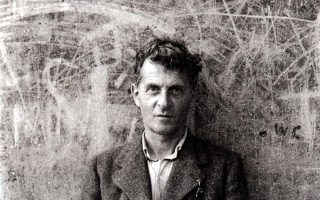AHR revisits Athens, Sparta, Games, El Greco
The Anglo-Hellenic Review is a publication that focuses on Greek-British ties and packs plenty of information and review articles into its slender, 30-page biannual format. Issue No. 30 is now on the market, with a typically varied offering that ranges from the painter El Greco to the liberation of Athens 60 years ago, plus quite a bit on the Olympics of the past as a backdrop to August 2004. The contents speak to the thematic breadth of Greek subjects, while the publication underscores efforts to maintain intellectual ties between Greece and Britain built on the political ones forged during the last World War. And the treatment remains a blend of the academic and the popular; that is to say, it is primarily academics reviewing (mainly) scholarly works for a somewhat wider audience. And given that the subjects tend to be historical, anniversaries that crop up offer timely (but passing) opportunities for remembrance; an example here is Lord Jellicoe’s account of the October 1944 liberation of Athens from the Germans – he being the first British uniformed officer to enter the beleaguered city suddenly caught up in a moment of ecstasy. Two brief but informative pieces on El Greco, aka Domenikos Theotokopoulos, outline his early years and give a retrospective of the 16th century Cretan painter. Pia Zombanakis reviews Prof. Nikos Panayiotakis’s (unfinished) work on the great painter, who went to Venice before finally settling in Spain, may have been born Catholic, and was likely a major local talent in Crete before heading on in search of fame and fortune. And Zita Konialidis reviews this year’s El Greco retrospective at Athens’s National Gallery, which traced his technical development to the Counter-Reformational works of his last years in Toledo. Paul Cartledge’s by now well-known work on Spartan culture is assimilated yet again in the second part of his Runciman Lecture from last year, printed here. He offers up love of competition, freedom as an ideal, and self-criticism as three defining characteristics of ancient Greece and which also affected Sparta, especially the first-mentioned. It concludes with a powerful statement of the sacrifice involved at Thermopylae in 480 BC, an almost certainly suicidal mission by 300 Spartan soldiers with long and coiffed hair, who also had to have living sons so as not to let the lineage die out. It is a defiant image he understandably prefers over the less exalted elements of Spartan society. Reading and running Naturally, the Olympic Games permeate much of the volume. Timing is not everything, but it managed to be a bugbear for this edition, which managed to go to press right in the middle of the Games. This gives some of it an odd feel of being contemporary yet no longer current. The review essay on Olympic titles may be enjoyable for those who were slow to warm to the theme (or die hard from it), although the spring edition might have been a better time for this. John Boardman’s opening essay focuses on the competitive and individualistic elements of ancient sport. As is usual, books and book reviews take up fully half this issue, especially as it coincides with the annual Runciman Award for 2004, which went to Roderick Beaton’s «George Seferis: Waiting for the Angel,» a very well-received volume from Yale University Press that drew not just on poetry but on unpublished letters and other papers as well as the turbulent historical times of the poet, who was also a prominent diplomat. It also reviews the other short-listed books, which included two on myths of classical antiquity (by Susan Woodford and Mary Lefkowitz), J.L. Lightfoot’s treatment of a work by Lucian, Paul Stephenson’s «The Legend of Basil the Bulgar-Slayer,» and a privately published compendium of Cavafy’s poetry, translated by Evangelos Sachperoglou. Many other reviews are also included, with a primary focus on the ancient and a secondary one on the modern, along with two volumes on Byzantium. The former includes Edward Bulwer Lyton’s book on the rise and fall of Athens (reissued from 1837), and a pair of titles on initiation and coming of age in ancient Greece. Modern works include «The Daedalus Book of Greek Fantasy» and a good comparative treatment by Michael Llewellyn-Smith, himself author of two titles reviewed here, of some recent guides to Athens. Lastly, it even reviews several recent TV documentaries airing on the BBC which, however, you and I are likely never to see.

